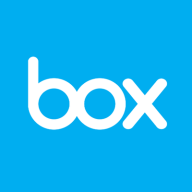

Box and Google Workspace are leading competitors in cloud workspace solutions, each offering unique strengths. Google Workspace seems to have the upper hand due to its comprehensive integration and real-time co-editing capabilities that enhance productivity and collaboration.
Features: Box offers user-friendly collaboration tools, mobile access, and robust file-sharing capabilities. In terms of security, Box provides advanced protective measures and enterprise management. Google Workspace stands out with seamless integration across its suite of applications, real-time co-editing, a broad ecosystem of productivity tools, and popular applications like Gmail and Drive.
Room for Improvement: Box users report issues with search functionality and seek better file management and integrations. The permission system could also be more flexible. Google Workspace could improve in integrating with traditional office tools and offering more intuitive collaboration tools. Enhanced interface and management features would further benefit users.
Ease of Deployment and Customer Service: Box supports deployment in both private and public cloud environments, but favors public cloud solutions, similar to Google Workspace’s public cloud deployment preference. Box’s customer service is praised for dedicated support managers and responsiveness, though sometimes reaching higher support tiers proves challenging. Google Workspace's customer service is efficient, with technical support meeting expectations, despite needing more intuitive solutions and quicker issue resolution.
Pricing and ROI: Box provides competitive pricing, with enterprise licenses offering value despite higher individual costs. Its pricing structures compete with solutions like SharePoint, offering robust features at reasonable costs, contributing to faster ROI through improved file management. Google Workspace’s pricing ranges from free to premium based on usage, offering cost-effective solutions. Some users find the pricing on the higher side, but the integrated tools and productivity benefits provide a positive ROI.
I sent several complaints and what they replied to me was that I should have dealt with the problem with the provider of my credit card.
In the past, we experienced a problem with automatic emails being blocked, and the support team resolved the issue quickly.
Even as a technical person, I struggle to find appropriate contact numbers or email addresses.
I am uncertain about its effectiveness at an enterprise level, where SharePoint might be preferred.
It supports around 2,500 users in our company, and this scalability assists us in maintaining our infrastructure.
Scalability involves another configuration with a new email configuration, involving some authentication issues with Microsoft Outlook.
If webinars were provided and universities were promoted with webinars, people are going to attend them.
Box was very stable and did not have any latency issues.
The stability of Google Workspace is excellent and very solid.
With Microsoft now that we are using, we have a security system by which every now and then you have to change your password, and whenever you try to access multiple times to the same email from different devices or many times in the same day, they will ask you for a code that you have to insert.
This stability is crucial to us because it ensures we do not lose communication or connection while using messaging and accessing files.
To open and see who is accessing the document now and see my movements across the document or the file we are sharing together.
Collaborative editing was challenging if multiple people were in a document at once.
The new integration was implemented last September, and we are facing some issues with OAuth 2.0 authentication.
The security functionalities are similar to those in competitors like Active Directory, but they could be optimized for stronger security features.
It is hard to find categories and folders in Teams.
I found the pricing reasonable because when I was working for an IBM partner, Box was free for us.
The current cost is approximately seven to ten euros per user per month.
Box had a very easy-to-use search feature and a good user interface on its website, which was faster and better than SharePoint.
Box's security features have helped my organization meet compliance needs.
The ability to share documents with students and assign them things and correct them in real time has been beneficial.
These tools enhance productivity by allowing us to edit the same file at the same time, making collaboration much smoother.
The valuable features include the email service, email updates, and Google Drive.
| Product | Market Share (%) |
|---|---|
| Google Workspace | 3.0% |
| Box | 3.7% |
| Other | 93.3% |

| Company Size | Count |
|---|---|
| Small Business | 17 |
| Midsize Enterprise | 9 |
| Large Enterprise | 27 |
| Company Size | Count |
|---|---|
| Small Business | 64 |
| Midsize Enterprise | 14 |
| Large Enterprise | 27 |
Box is a Modern Content Management Platform for companies of all sizes and industries. The difference that Box brings is that it offers the security and controls admins need with the sharing and collaboration capabilities end users want. Box has made it easier for people to securely share ideas, collaborate and get work done faster. Today, more than 62,000 businesses, including 59% of the Fortune 500, trust Box to manage content in the cloud.
The Box platform provides HIPAA, FINRA, FedRAMP, and many other compliances to go with granular access permissions and advanced security capabilities.
By using Box you can sync, share, and collaborate on all types of files, anywhere, on any device - but that's just the beginning. You can choose where to store your data, to manage your own encryption keys, and set workflows to automate content-based processes. You can also assign custom metadata tags to content, watermark sensitive content, and set file retention or legal hold policies.
Box has deep, native integrations with Microsoft Office and Outlook, Google Apps for Work, Salesforce, Netsuite, Docusign, Adobe, and many other best-of-breed solutions you may already be using.
Similar to G Suite, all Google Workspace plans provide a custom email for your business and include collaboration tools like Gmail, Calendar, Meet, Chat, Drive, Docs, Sheets, Slides, Forms, Sites, and more.
As we’ve evolved G Suite into a more integrated experience across our communication and collaboration tools, we’ve rebranded to Google Workspace to more accurately represent the product vision.
We monitor all Cloud Storage reviews to prevent fraudulent reviews and keep review quality high. We do not post reviews by company employees or direct competitors. We validate each review for authenticity via cross-reference with LinkedIn, and personal follow-up with the reviewer when necessary.